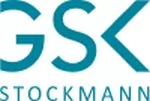2.1 What is the capital markets infrastructure in your jurisdiction (eg, trading venues, central counterparties, central securities depositaries (CSDs)?
The Luxembourg Stock Exchange (LuxSE) is authorised to operate in Luxembourg the business of trading venues – that is, regulated markets, multilateral trading facilities (MTFs) and organised trading facilities (OTFs) – pursuant to the MiFID II Law. In particular, the LuxSE operates:
- the main regulated market – an EU-regulated market named Bourse de Luxembourg (BdL); and
- the exchange regulated market, called the Euro MTF market.
Currently, no OTF has been established in Luxembourg.
Post-trading activities are cleared via LCH.Clearnet SA, which acts as central counterparty within the meaning of the European Market Infrastructure Regulation (648/2012) (EMIR), and are settled through Euroclear Bank and Clearstream Banking SA. The settlement process is carried out by securities settlement systems (SSSs), which enable the securities to be transferred and settled by book entry. An SSS is operated by a central securities depository (CSD) pursuant to the EU CSD Regulation (909/2014). CSDs may provide securities accounts, central safekeeping services and asset services. There are two CSDs established in Luxembourg:
- LuxCSD SA; and
- Clearstream Banking SA, which also acts as international CSD.
2.2 What are the main exchanges and other trading venues in your jurisdiction? What are the key differences between those various trading venues?
The LuxSE operates the BdL market and the Euro MTF market. The main difference between these two markets is that far less stringent disclosure requirements apply to issuers whose securities are admitted to trading on the Euro MTF market. In particular, the Euro MTF market is outside the scope of the EU Prospectus Regulation and the EU Transparency Directive. As a consequence, a prospectus prepared in connection with a securities admission to trading on the Euro MTF market is not eligible for the European passport for the prospectus documentation, which is very useful when an issuer intends to offer securities in more than one EU member state. In addition, the LuxSE is responsible for the review and approval of a prospectus for an admission to the Euro MTF market pursuant to its Rules and Regulations; whereas for an admission to the BdL market, the competent authority responsible for the approval of a prospectus based on the EU Prospectus Regulation is the Commission de Surveillance du Secteur Financier (CSSF).
In addition to the BdL market and the Euro MTF market, the LuxSE offers issuers the possibility to register their securities in the LuxSE Securities Official List (SOL), without admission to trading in order to provide for enhanced visibility for investors. The SOL is not subject to regulation related to admission to trading and also gives access to the Luxembourg Green Exchange (LGX), a platform dedicated exclusively to the exchange of green securities.
2.3 What kinds of securities does your jurisdiction provide for (eg, electronic securities)?
Under Luxembourg law, securities may be issued in bearer, dematerialised or registered form.
2.4 Is it mandatory to deposit securities with a (local) CSD (eg, for listing)?
According to the EU CSD Regulation, where a transaction in transferable securities takes place on a trading venue, the relevant securities must be recorded in book-entry form in a CSD in order to ensure that all such securities can be settled in an SSS.
An issuer can arrange for its securities admitted to trading on regulated markets or MTFs or traded on trading venues to be recorded in any CSD established in any EU member state, subject to compliance by that CSD with conditions referred to in Article 23 of the EU CSD Regulation.
2.5 Are there rules in place governing crypto-assets and crypto-infrastructure (eg, crypto-exchanges, local crypto-money)?
There is currently no legal framework in Luxembourg that specifically applies to crypto-currencies. However, the CSSF has acknowledged that the raising of funds from the public in the form of an initial coin offering may fall within the ambit of certain rules and regulations, such as the EU Prospectus Regulation, depending on the nature of the tokens issued. In addition, the services provided by crypto-exchanges – that is, platforms which allow the conversion of crypto-currencies to fiat money or to other digital currencies and vice versa – are considered by the CSSF as financial services and as such are subject to ministerial authorisation in order to conduct their business in Luxembourg. Currently, there are two crypto-currency exchanges licensed in Luxembourg and which are therefore subject to the supervision of the CSSF: Bitstamp, a bitcoin exchange, and bitFlyer.
In general, Luxembourg law is continually modernised in order to keep up with technological innovations such as distributed ledger technology (DLT) as the underlying technology for crypto-currencies. For instance, the Luxembourg legislature recently introduced the laws of 1 March 2019 and 22 January 2021, which, among other things, allow dematerialised securities to be issued, held and maintained with secured electronic registration systems such as a DLT or in databases managed by settlement organisations or central account keepers.
2.6 Are special rules in place for crowdfunding products?
Currently, there are no specific crowdfunding rules in Luxembourg. However, the EU Crowdfunding Regulation (2020/1503) and EU Directive 2020/1504 amending Directive 2014/65/EU linked to the EU Crowdfunding Regulation were published in the Official Journal of the European Union in October 2020. The EU Crowdfunding Regulation, which applies as of 10 November 2021, sets out detailed rules on:
- financial products marketed on crowdfunding platforms;
- crowdfunding services; and
- the authorisation and supervision of crowdfunding service providers for the purpose of creating an EU passport that would facilitate and foster cross-border funding of businesses.
2.7 What kinds of databases are available on instruments issued and traded in your jurisdiction, and how can they be accessed?
The LuxSE affords the public free access to a centralised database in which various documents relevant to issued securities are available, such as prospectuses, financial statements and other information relating to issuers. In addition, the LuxSE recently launched the LGX DataHub, which is a centralised database on green securities which can be accessed only upon payment.
The content of this article is intended to provide a general guide to the subject matter. Specialist advice should be sought about your specific circumstances.


